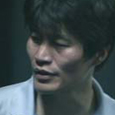 Nakhyung Kim
Nakhyung KimGraduatedfrom Sejong University in 1993
Plays
2008 Macbeth (adaptation/director, BestPlay at the Korea Theater Awards)
2005 All Nights on Earth (playwright,director)
2001 Shooting Stars; My Classroom(playwright, director)
KimNak-hyung’s plays start out from personal experience, interest in others, andour unconscious and sense of guilt, and are always built on reality. The humorand lyricism, cruelty and humanity within our everyday reality also coexist in Kim’s plays, give them a unique, inexpressible appeal. Nakhyung Kim is animportant voice in Korean theater, confronting a world dominated by heartlessviolence and listening to the low voices of those trying not to lose theirsouls in the world.


Jury’s Statement
Nakhyung Kim has long had a singular vision, building a world of his own. Active as an actor, stage director, and assistant director in Theater Troupe 76, Kim also began writing in 2001 when he became a member of the directors’ group No.1, Hyewha-dong, then in its third year. His works Stars Pouring Down (2001), My Classroom (2001, 2003, and 2006), All the Nights on Earth (2006), and Macbeth (2008) were performed on stage by a theater company curiously named Jukjuk, literally “Bamboo Bamboo,” which, phonetically, could also mean “in long, straight lines.” Kim may be far from being a prolific writer but his presence has already been deeply engraved on our minds. Kim belongs to the group of writers that did not benefit from the institution of Korean theater, partly due to the preconceived notion that a descendant of Theater Troupe 76 would be too rough and direct in his work. However, the truthfulness toward life and the world portrayed through his written and directed works, as well as the mastery of symbols and metaphors in his writing that emanates an affection for humankind, make him well worthy of being the first recipient of this award. What makes Nakhyung Kim stand out as a man of the theater is, most of all, his writerly self. If we talk about him as a director, he should be called a writerly director because the plays he stages cannot exist without the stories he create as a writer. Starting from his own experience and a keen observation of others as well as the ability to capture our unconsciousness and guilty conscience, Kim’s stories are always rooted in reality. The humor, lyricism, brutality, and humanity that coexist in reality also exist in his plays, adding a unique appeal to his works that is difficult to express through words. Writers like Kim, who peer out into a world ruled by cold-hearted violence and listen to the hushed voices of those trying hard not to lose their souls, are no doubt invaluable in the Korean theatrical world. There is always the duplicity of lyricism and narrative in his theatrical point of view. His stories are always a foregrounded half of a whole, told in a way that implies the other half, that is, the unspoken front, back, below, or side of the story. Through such implied images of life, Kim always reveals the untold backstory. This does not come from training but from the depth of Kim’s take on the world. His works have a strength that originates from that depth, and that enables us to rediscover theater through a novel emotional state. At times his work may seem rough and unrefined but that strength is the spirit that seeks truth beyond facts and the authenticity of the questions aimed at contemporary people. His stories don’t follow a traditional narrative structure, yet they contain words beyond words, materialized gestures and strange commas and pauses. Through the gestures brought about by the breathing of commas and various pauses, playwright Nakhyung Kim looks into the surroundings and niches of everyday life, and translates the hidden silence into words and gestures. Thus, he exquisitely captures, between every two words, every two gestures, despairing ruptures and imbalances of the world in which we live. That exquisiteness derives from Kim’s excellence at simultaneously creating lyrical and narrative distances between him as a writer and his captured reality. Kim once expressed his concern that artist support programs are making Korean plays like “greenhouse plays.” He also criticized plays that do not confront audiences but pander to them. As Kim is now approaching age 40, like “the banality of evil,” the banality of everyday life may be becoming an invisible enemy encroaching the artist’s life and his art. We hope this award will give writer/director Kim a boost to his valuable activities that have helped broaden the spectrum of Korean theater, and that he endures the cacophony produced by recent cross-referential plays that answer questions yet to be asked, so that the silent destructive power of Kim’s hushed voice opens new possibilities.
_ Donghyun Kim, Ijeong Roh, and Hyungjun Cho